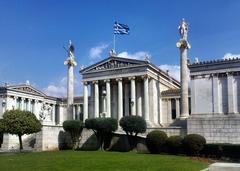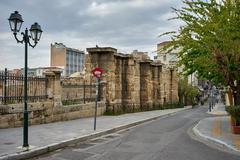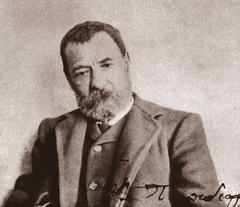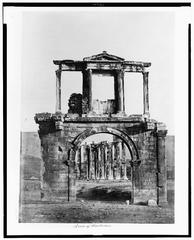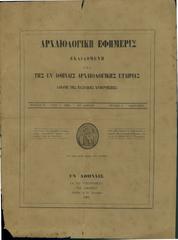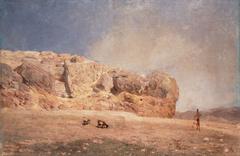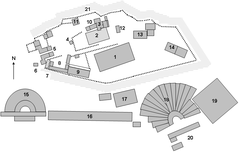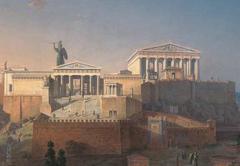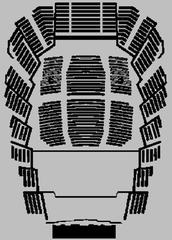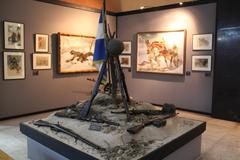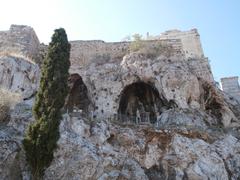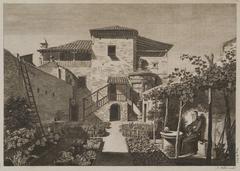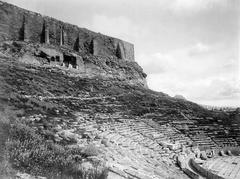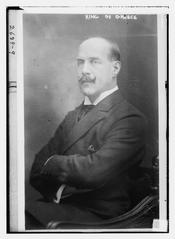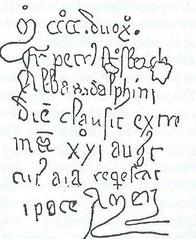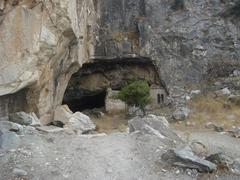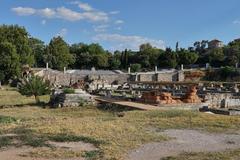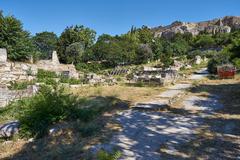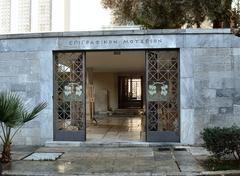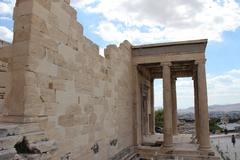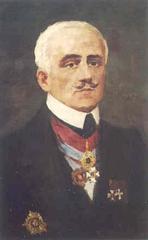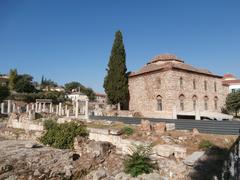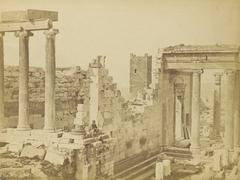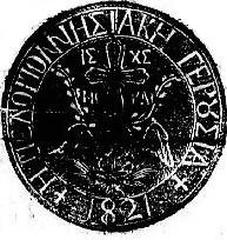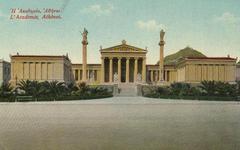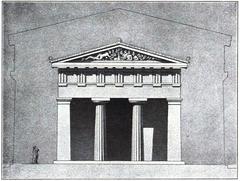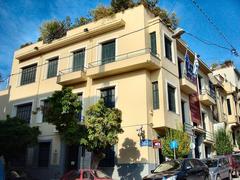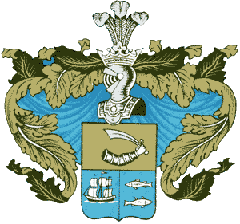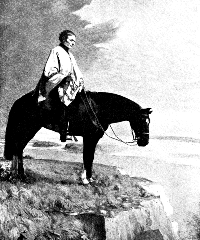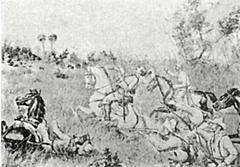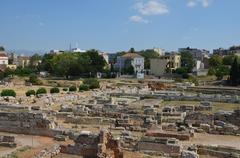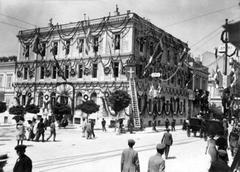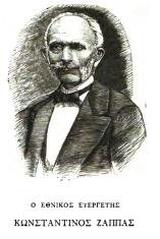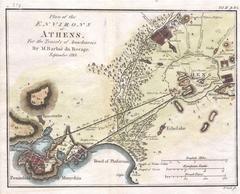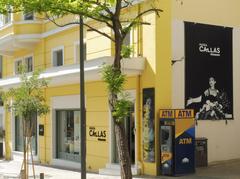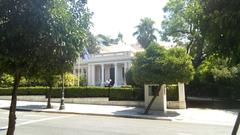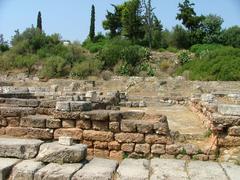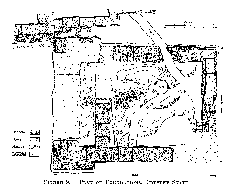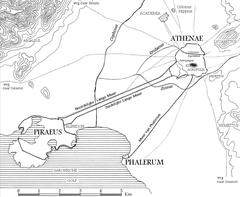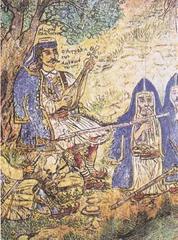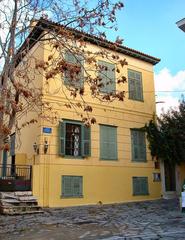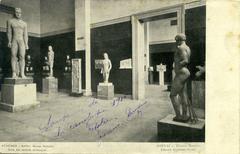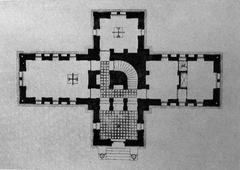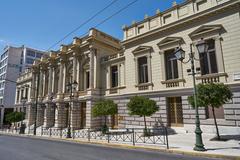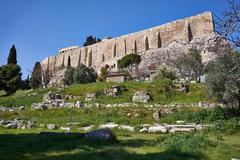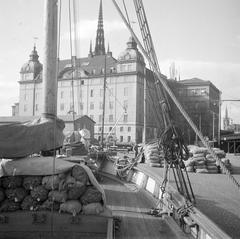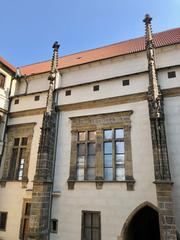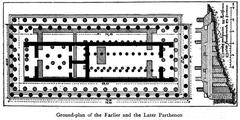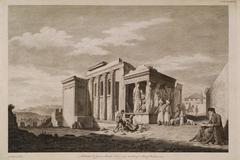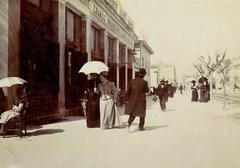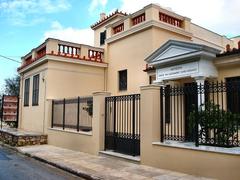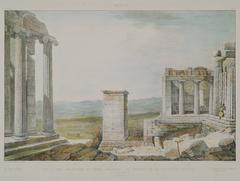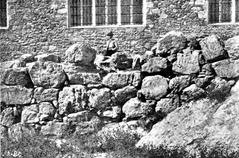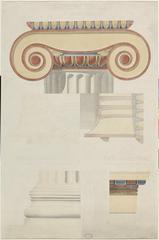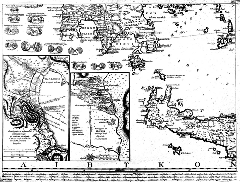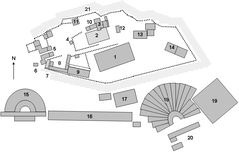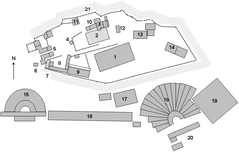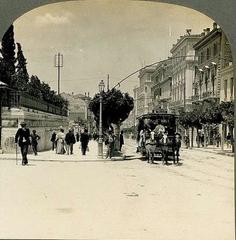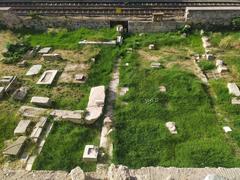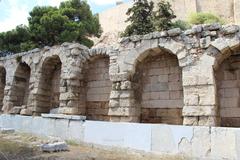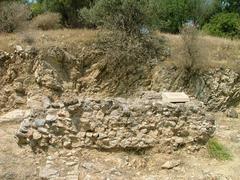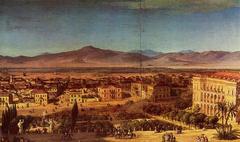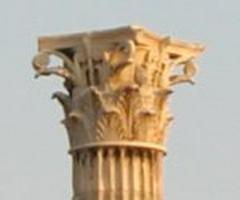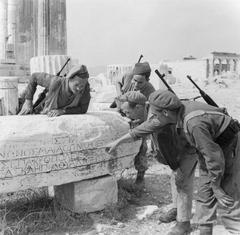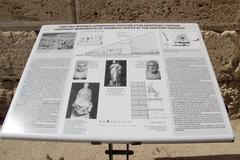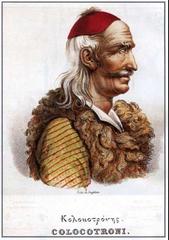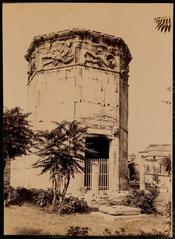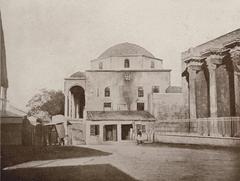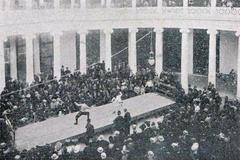
Imia Memorial Visiting Guide: Athens, Greece — Tickets, Hours, and Tips
Date: 03/07/2025
Introduction
The Imia Memorial in Athens stands as a solemn tribute to the Greek Navy officers who lost their lives during the 1996 Imia Crisis—a pivotal event in Greek-Turkish relations. Honoring Christodoulos Karathanasis, Panagiotis Vlahakos, and Ektoras Gialopsos, this monument is both a place of national remembrance and a symbol of vigilance, sovereignty, and the enduring complexity of the Aegean dispute. Centrally located, the memorial offers visitors a contemplative space and an opportunity to connect with recent Greek history.
Open year-round and free of charge, the Imia Memorial is easily accessible via Athens’ public transportation and is near major landmarks like the Panathenaic Stadium and Syntagma Square. Annual commemorations held every January 31st provide the chance to experience Greek traditions of honor and remembrance firsthand.
For further details and historical background, consult resources from the Hellenic Ministry of National Defence, the Athens Tourism Board, and the Conflict Analysis Research Centre at the University of Kent.
Quick Overview: Contents
- Historical Background of the Imia Crisis
- Memorial Significance
- Location and Directions
- Memorial Features and Design
- Visiting Hours and Admission
- Accessibility and Visitor Etiquette
- Annual Commemorative Events
- Guided Tours and Visitor Experience
- Nearby Historical Sites
- Practical Travel Tips
- Visual and Interactive Media Resources
- Frequently Asked Questions (FAQ)
- Additional Resources and Links
- Conclusion and Recommendations
Historical Context: The Imia Crisis
In January 1996, a territorial dispute over the small, uninhabited Imia islets (Kardak in Turkish) in the Aegean Sea nearly sparked armed conflict between Greece and Turkey. The situation escalated when Greek local officials raised their national flag, prompting Turkish responses and a tense military standoff. The crisis peaked on January 31, 1996, when a Greek Navy helicopter crashed during a reconnaissance mission, claiming the lives of three officers. Their sacrifice is central to the memorial’s purpose, serving as a reminder of the cost of such disputes and the necessity for diplomatic solutions (Greek Reporter).
Symbolic and National Significance
Commemoration of Sacrifice
The Imia Memorial is a focal point for national remembrance. Annual ceremonies on January 31 draw military officials, government representatives, and citizens to honor the fallen officers with wreath-laying, moments of silence, and the recitation of their names (Protothema).
Reflection of Greek-Turkish Relations
The monument stands as a tangible reminder of the ongoing sensitivities in Greek-Turkish relations and the importance of diplomatic restraint. Its presence underscores the continuing relevance of the Imia Crisis and the value of peaceful conflict resolution (Greek Reporter).
Political and Social Dimensions
The memorial has occasionally served as a site for political expression and reflection on national defense. Gatherings by various groups, such as veterans’ associations, underscore its role as a platform for broader discussions about identity, security, and sovereignty (Alamy).
Location and Directions
The Imia Memorial is located on Vasileos Konstantinou Avenue, in the Pangrati district, directly opposite the Panathenaic Stadium (Kallimarmaro). Its proximity to major attractions like the Zappeion Hall and National Garden makes it easy to incorporate into any Athens travel itinerary.
Public Transport:
- Metro: Evangelismos station (Line 3) is the nearest stop; Syntagma is also nearby.
- Bus/Trolley: Multiple lines serve the area.
- Walking: Easily accessible on foot from central districts and major landmarks.
- Imia Memorial on Google Maps
Features and Design
Constructed from white marble, the Imia Memorial consists of three upright steles arranged in a triangle, each inscribed with the name and rank of a fallen officer. The base bears “Αθάνατοι” (“Immortal”), signifying their eternal memory. The monument is surrounded by tranquil gardens featuring olive trees and laurel bushes, and is illuminated at night. Simple iron railings and benches create a peaceful atmosphere for contemplation.
Image suggestion: “Imia Memorial in Athens - marble monument honoring fallen officers”
Visiting Hours and Admission
- Hours: Open 24/7, year-round.
- Admission: Free. No tickets or reservations required.
Note: Access may be temporarily restricted during official ceremonies or security events, particularly on January 31.
Accessibility and Visitor Etiquette
- Accessibility: Wheelchair accessible with paved pathways.
- Etiquette:
- Dress modestly and maintain a respectful demeanor.
- Keep noise to a minimum; silence is appreciated, especially during ceremonies.
- Photography is allowed, but avoid intrusive behavior or taking photos during private moments of remembrance.
Annual Commemorative Events
The main event occurs on January 31, marking the anniversary of the crisis. The ceremony includes:
- Wreath-laying by officials
- Speeches and moments of silence
- The national anthem
Events are open to the public, but expect crowds and increased security. Arrive early for a good vantage point (Protothema).
Guided Tours and Visitor Experience
While there are no dedicated visitor centers or official guided tours exclusively for the Imia Memorial, several Athens city and historical tours include it as a stop, providing context on the crisis and its significance.
- Self-Guided Visits: Informational plaques provide background and context.
- Audio Guides/Apps: Look for official apps offering commentary on Athens memorials.
Nearby Historical Sites
Enhance your visit by exploring these nearby attractions:
- Panathenaic Stadium: Site of the first modern Olympics.
- Zappeion Hall: Historic venue for official events.
- National Garden: Tranquil greenery for reflection.
- Acropolis and Plaka District: Iconic ancient sites and vibrant neighborhoods.
- War Museum of Athens: Broader context on Greece’s military history. (Greeka, Earth Trekkers)
Travel Tips for Visitors
- Visit early morning or late afternoon to avoid heat and crowds.
- Combine with other sites for a richer historical experience.
- Wear comfortable shoes; expect some walking.
- Respect all ceremonies and avoid political discussion at the site.
- Use public transportation for convenience.
Visual and Interactive Media Resources
- Official websites and local guides may offer virtual tours and interactive maps.
- Incorporate images with SEO-optimized alt text, such as:
- “Imia Memorial in Athens - marble monument honoring fallen officers”
- “Annual wreath-laying ceremony at Imia Memorial with Greek flags”
- “Map showing location of Imia Memorial near Syntagma Square in Athens”
- “Visitors reflecting at the Imia Memorial on a sunny day in Athens”
Frequently Asked Questions (FAQ)
Q: What are the Imia Memorial visiting hours?
A: The memorial is accessible 24/7 throughout the year.
Q: Is there an entrance fee or ticket required?
A: No, entry is free and open to all.
Q: Are guided tours available?
A: Some city tours include the memorial; check with local operators.
Q: When does the main annual commemoration take place?
A: Every January 31.
Q: Is the memorial accessible for visitors with mobility issues?
A: Yes, the site is generally accessible; however, crowds during events may create challenges.
Q: Can I take photos at the memorial?
A: Yes, but be discreet and respectful, especially during ceremonies.
Additional Resources and Further Reading
- Hellenic Ministry of National Defence
- Athens Tourism Board
- Conflict Analysis Research Centre – University of Kent
- Protothema
- Greeka
- Greek Reporter
- Alamy
- To Vima
- Athens Tourist Information
- Earth Trekkers
- Best Greek Places - Visitor Etiquette
- Greece Insiders
Conclusion and Visitor Recommendations
Visiting the Imia Memorial is an opportunity to engage with recent Greek history and to honor those who sacrificed their lives in defense of their nation. Its central location, free access, and proximity to other Athens landmarks make it an essential stop for those seeking a deeper understanding of Greece’s modern challenges and national memory.
Approach your visit with respect and cultural sensitivity, especially during commemorative events. Enhance your experience by exploring nearby historical sites and utilizing guided resources.
For more travel tips, detailed guides, and updates on commemorative events, download the Audiala app and follow official Athens cultural channels.
For additional planning resources and in-depth articles, consult: Protothema, To Vima, and Greek Reporter.
Sources and Further Reading
- Hellenic Ministry of National Defence
- Athens Tourism Board
- Conflict Analysis Research Centre – University of Kent
- Protothema
- Greeka
- Greek Reporter
- Alamy
- To Vima
- Athens Tourist Information
- Earth Trekkers
- Best Greek Places - Visitor Etiquette
- Greece Insiders

